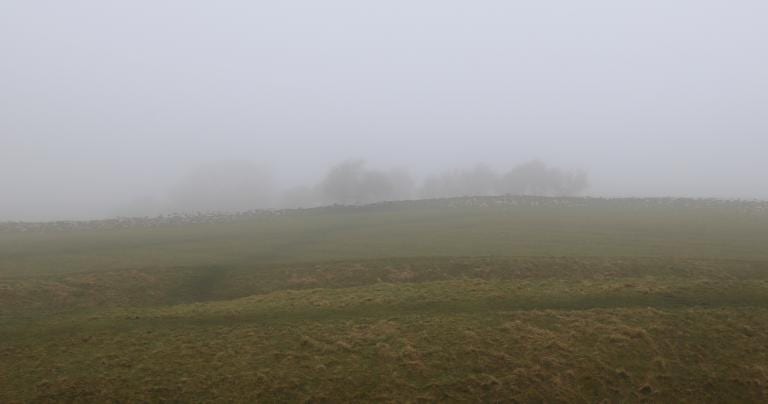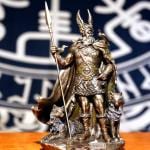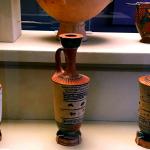Here are the last of the questions from this month’s Conversations Under the Oaks.
Charlie Larson asks: “How do you feel about Pagans serving as a spiritual clergy member in a hospital setting, just as a Christian priest or minister would?”
Hospital chaplaincy is its own special calling. It requires learning a specific set of listening and counseling skills, which typically requires certification. One of the reasons Cherry Hill Seminary was formed was to give Pagans a chance to earn an M.Div. (Master of Divinity degree) in a Pagan setting.
Chaplains are expected to serve everyone: Pagans, Christians, atheists, and everyone else. Perhaps a Christian chaplain can get away with offering generic Protestantism to everyone (though they shouldn’t, and most don’t) but Pagans cannot. Some things require clergy of a particular tradition: if a Catholic wants the Catholic last rites, they need a Catholic priest. But a professional chaplain needs to be able to serve anyone of any religion, at least at a basic level.
Some hospitals keep a list of volunteer chaplains for less popular religions. Some of those require certification, while others don’t.
I do my best to serve as clergy to members of my local groups. Outside those groups, I’ll respond if I can.
But to answer your question directly, more Pagan chaplains would be a very good thing.
Elizabeth Anne Driskell Ahmad asks “How has the Veil falling affected your magical praxis and abilities? Stronger, weaker, unexpected results (boon or bane), new developments in areas that you had no interest or ability, etc.? And anyone else you know of having the same? It’s been a mixed bag for me on a number of fronts. Just curious at the wider experiences.”
That’s not something I’ve thought much about. I’ve noticed the Shredded Veil and the Cycles of Magic and the Otherworld plenty. I haven’t paid much attention to their impact on my skills and abilities. Plus I’m not sure how I would separate the environment’s impact on me from my own learning and growth in response to that impact.
Compared to, say, three years ago, my sense of connection to the Gods and spirits I work with is stronger – in particular my connection to my ancestors. My divination skills are definitely better. My dreams seem to be deeper but no clearer, and dreams that are truly prophetic remain rare. The efficacy of my magical workings seems to be about the same… not that I do a ton of magic.
But again, is that the closer presence of the Otherworld or is it my own learning and growth?
The one thing I’m sure it has affected is my sense of urgency. Things are changing and they’re changing fast. I’ve got to keep up or I’ll get run over.
I’m just one person. If you’ve seen your skills and abilities change over the past few years, describe it in the comments. The more data points we have the better conclusions we can draw.
How can polytheists who honor non-Indo-European gods replicate the successes that Druidry has had? Almost everyone in the Texas Pagan community whose scholarship I value is, if not a Druid themselves, someone with a history in Druidic organizations. I would love to be having conversations about modern liturgy and polytheism on the same level in the Mesopotamian Pagan community, but it just doesn’t seem to be a thing.
That’s a difficult situation. Mesopotamian-based polytheism doesn’t have the connections to Anglo-American culture that Druidry does, nor does it have 300 years of revival activity (though the vast majority of those 300 years of modern Druidry had nothing to do with polytheism).
All any religious tradition can do is to start where you are. Do private devotion, form groups, hold public rituals. Write blogs and books. Go to conferences and conventions and talk about your tradition.
Mainly, honor your Gods and ancestors to the best of your ability. When we focus on doing our religions as deeply and authentically as possible, growth comes naturally. When we focus on growth, we get watered down religion-by-consultants and people go somewhere else.
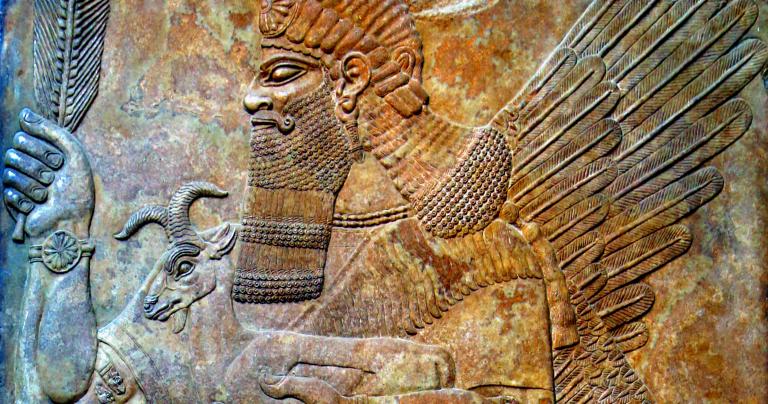
Is there one person that has since passed that you have never met and really want to talk to? What could you have learned from them?
My first answer was Gerald Gardner, but only if I could use truth serum. I’d like to ask him about some of his experiences and sources. Was he really initiated into an existing coven of witches? If so, who were they and what kind of witchcraft did they practice?
But if I really could go back and talk to anyone from any time, I’d go back to pre-Roman Anglesey, grab the most experienced Druid I could find, then ask him (or her) to tell me as much as possible about what they do, how they do it, when they do it, and why.
I think what that ancient Druid could tell me would be only tangentially relevant to what I and other contemporary Druids do here and now. Good religion is living religion, expressing timeless truths in ways that are relevant to specific people living in a specific place and time. But it would help us understand our roots.
Mainly, though, I’m eternally curious – I want to know.
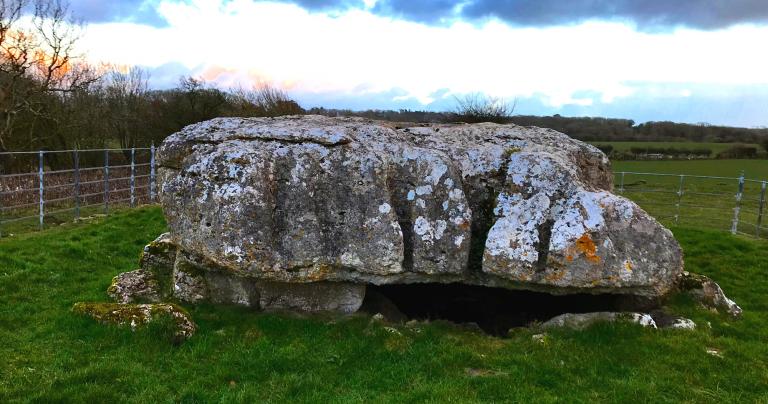
How do you start a CUUPS chapter when your minister really doesn’t get Paganism? It’s less outright opposition and more like road blocks and excessive questioning of everything. Doesn’t get the value, seems open to persuasion if we do all the research for her and can prove that it’s completely within UUA goals and actually necessary to this particular congregation.
There are SO many issues that could be at the root of this problem and it’s impossible to say for sure without being there, and probably not even then. But here are some things to consider.
Sometimes there are educational issues. I can’t find any hard numbers, but I feel safe in saying that even today most (though certainly not all) UU ministers would be best described as humanists, or as what Karen Armstrong calls “freelance monotheists.” They may not know much of anything about Paganism, beyond the fact that there are a couple of readings by Starhawk in the UU Hymnal. If they’re open to reading books, I recommend Pagan and Earth-Centered Voices in Unitarian Universalism. It’s a Skinner House (aka – UUA) book. I’ve got an essay in it titled “Pagan Depth in Unitarian Universalism, or, Why UU Polytheism Is Not An Oxymoron” (I get no royalties from sales of this book).
Some ministers don’t see how Paganism fits into Unitarian Universalism. They need to know that CUUPS has been around since 1987 and was one of the driving forces behind adding the Sixth Source to the Sources of Unitarian Universalism. As with Christians and Buddhists – and humanists – what makes us UUs is not what we believe, but how those beliefs inspire us to live in the world.
Some ministers are afraid of a CUUPS group becoming a separate congregation – becoming a group that uses the building but never contributes to the wider missions and programs of the church. In my time on the Board of CUUPS National (2011 – 2014), the most frequent source of conflict between CUUPS chapters and host congregations was “right relationship.” A group seeking to form a CUUPS group should always have a strong contingent of church members who are active in the congregation.
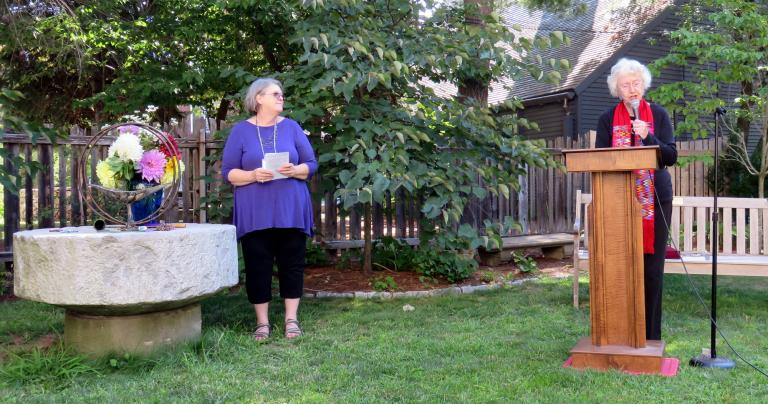
Some ministers are afraid of people they consider “untrained” running public-facing programs. If a CUUPS circle goes badly, that will reflect badly on the church – and by extension, on them. Every time Denton UU has had a new minister, our CUUPS group invited them to our next circle, so they could see first-hand what we do and how we do it. Show you can lead a Sunday service, or an RE class, or some other event. Again, being an active and involved member of the church goes a long way.
And though it should not be, some ministers – and some lay UUs – simply don’t want “that witchcraft crap” in “their” church. They’re good, rational humanists and they think everyone else should be too. These people need to be reminded that neither UUism nor any individual congregation belongs to them, and that there are six sources of wisdom and inspiration, not just one.
Remember that in a UU church, it is the Board of Directors and not the minister who has final say over church operations. And if the minster really and truly doesn’t get Paganism (it still happens, even in Unitarian Universalism), the Board of CUUPS National includes a ministerial / right relations liaison, who is Rev. Dr. John Gilmore, who you can contact for assistance.
My recommendation is to assume good intentions. Educate where you can. Demonstrate your competence and your commitment to the church. Insist that UUs live up to their principles.
CUUPS has been a tremendously helpful thing for me since 2003 and I would not be where I am without it. I stepped aside from formal leadership in 2017, but I remain an active member of Denton CUUPS, and I wish you nothing but the best in your efforts to get a new chapter up and running.



